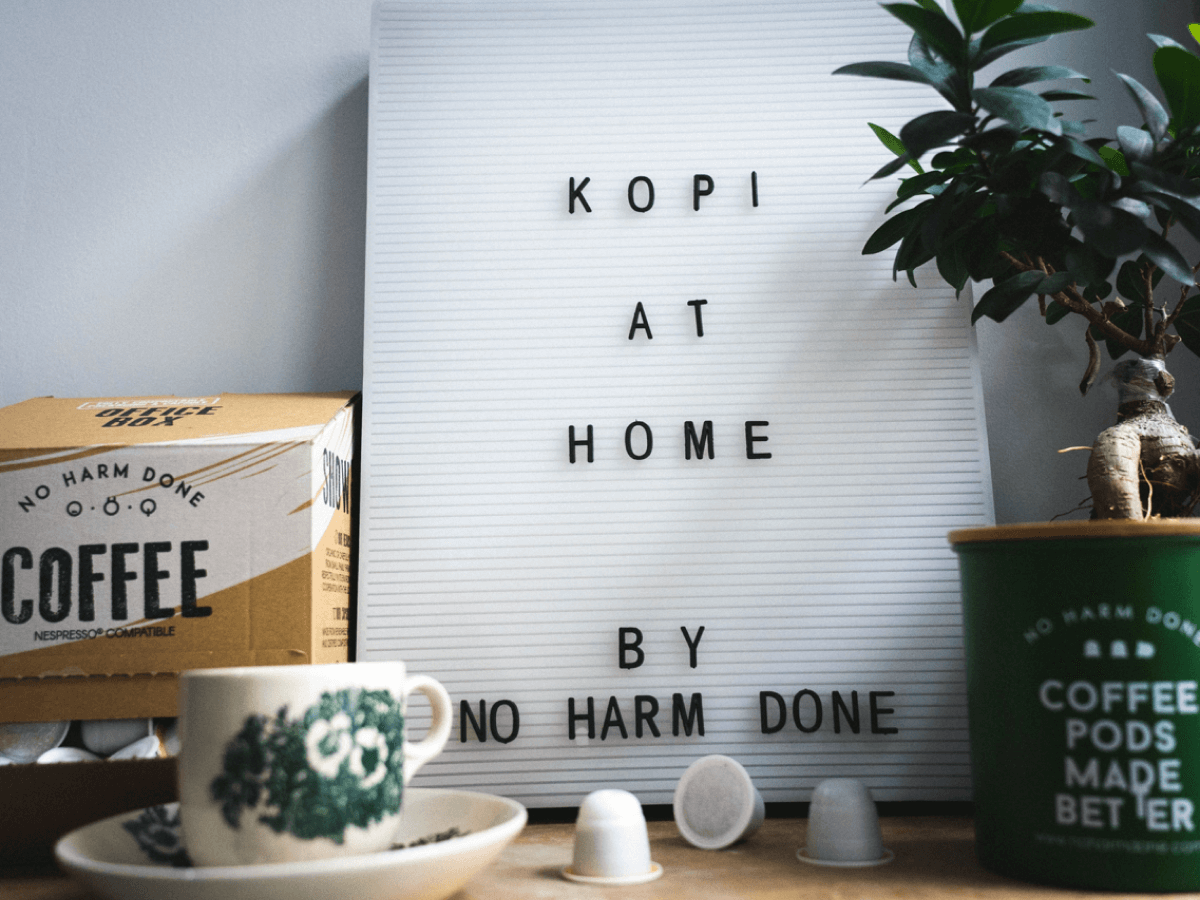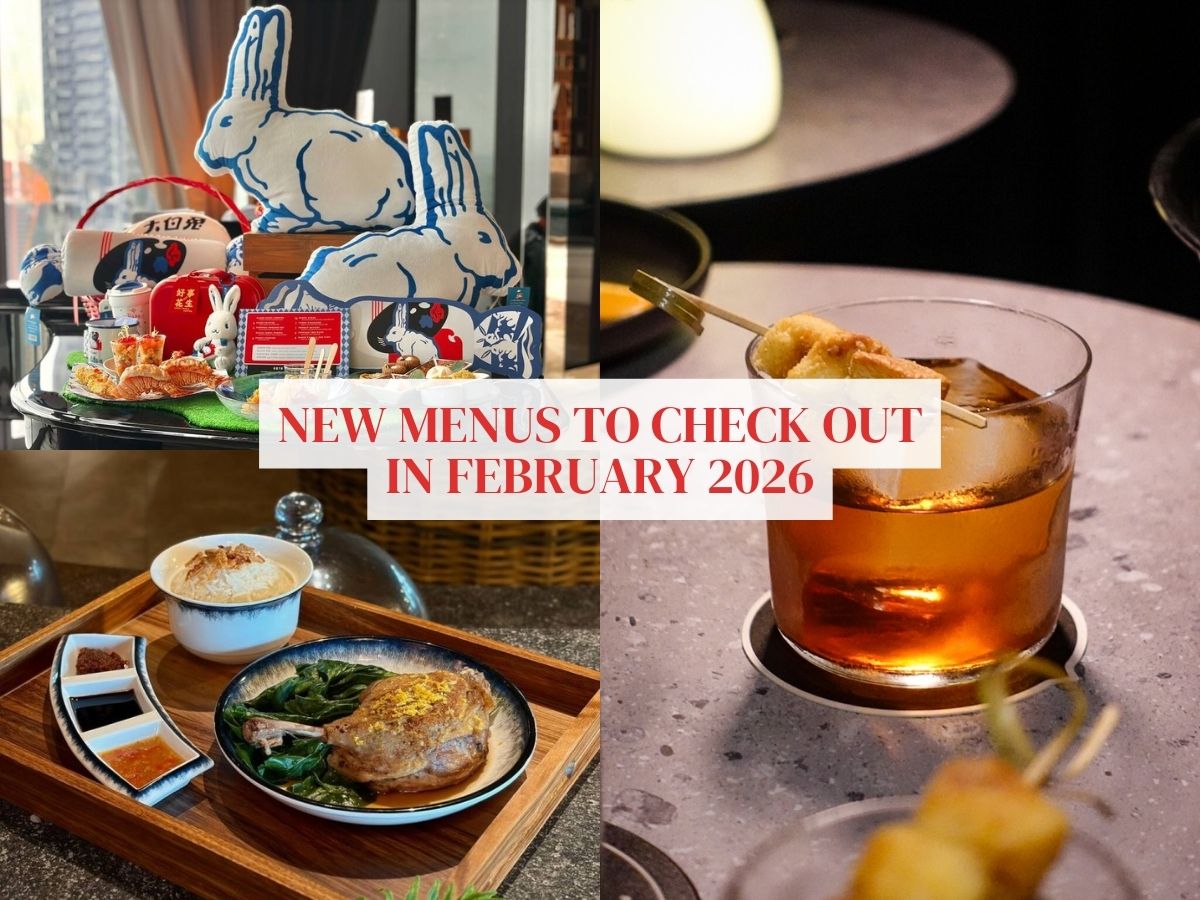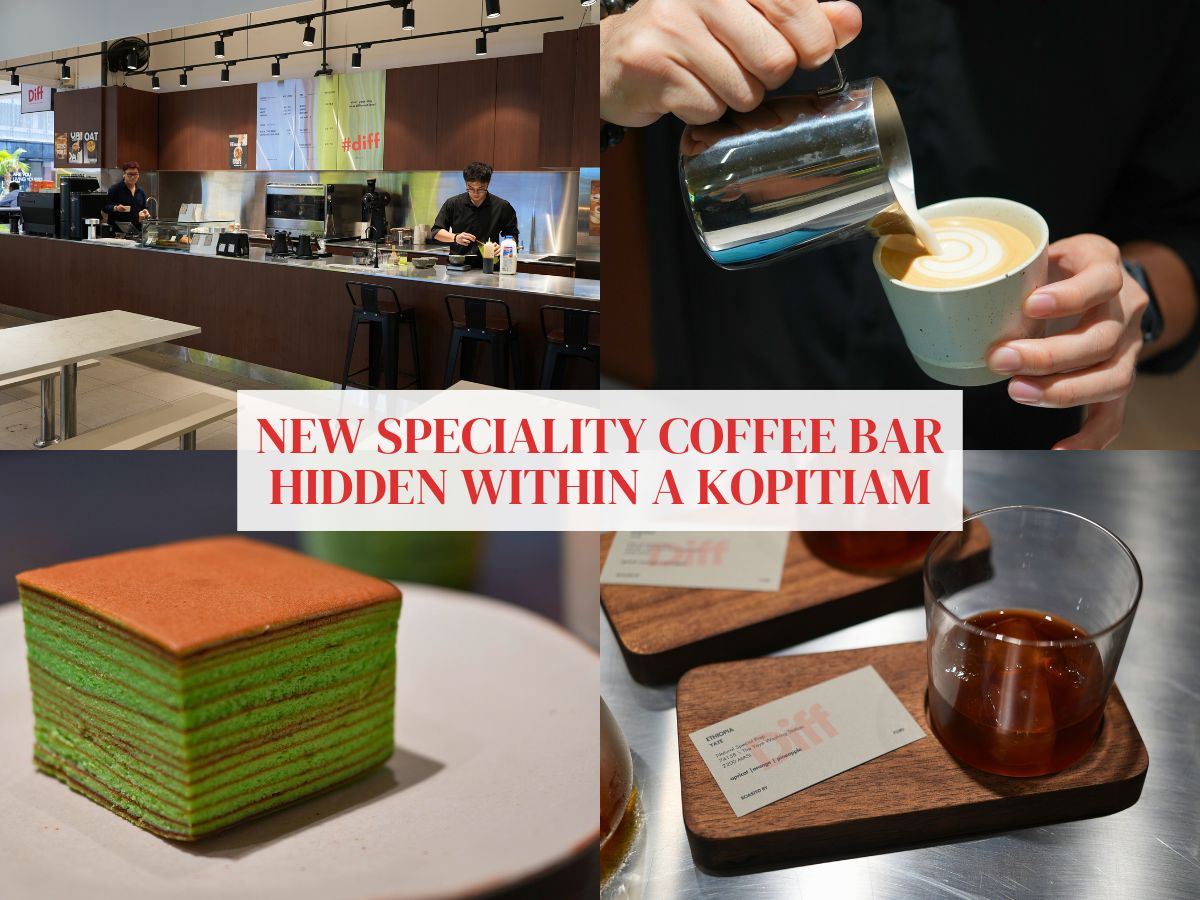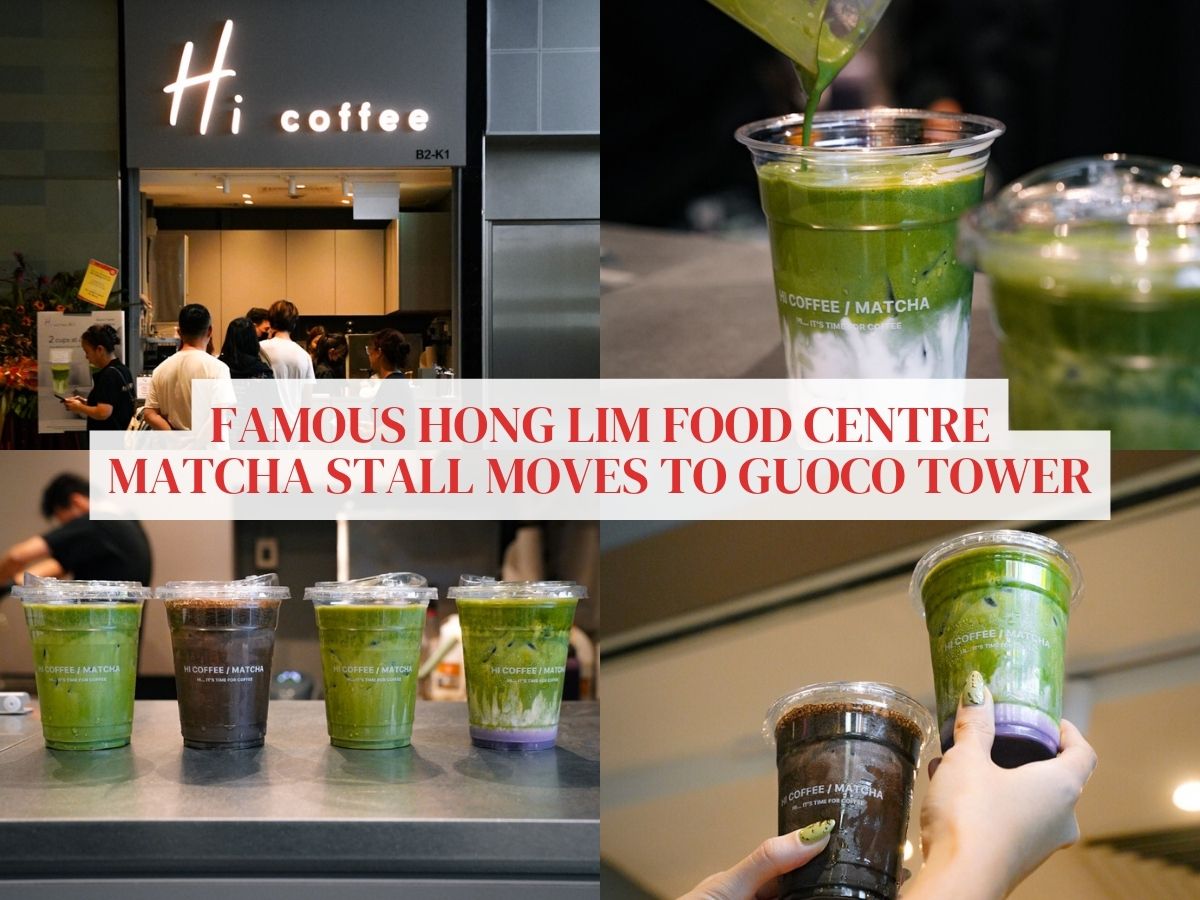No Harm Done creates eco-friendly coffee pods with a Singapore twist
- No Harm Done promotes sustainable coffee habits via environmentally friendly pods
- A lot of trial and error has gone into making the business plastic-free
- Its line of pods comes with a Singapore twist, with flavours such as Singapore Kopi-O and cha yen
- The startup works with vulnerable populations and offers jobs to seniors
As with many caffeine addicts out there, coffee is my morning must-have. Whether it’s coffee pods, 3-in-1 kopi packets or takeaway coffee in a styrofoam cup, I opt for the easiest way to get my caffeine hit.
It was thus a slightly sheepish encounter when I met Simon Lieberum, 38, co-founder of No Harm Done, a homegrown coffee startup promoting zero-waste and sustainable living.
While I try to use reusable coffee cups and recycle whenever possible, it’s a challenge to shake off the habitual use of aluminium coffee pods on an almost-daily basis.
Lieberum says: “Generally, aluminium coffee pods are not very sustainable at all. Especially (given) how it’s sourced, it causes a lot of damage to the environment. (It’s) a step before you can talk about recycling a capsule, (because) just producing it is extremely harmful.”
So, what are the alternatives?
How No Harm Done started
Lieberum first came to Singapore from Germany in 2013 and has two children with his wife, a Singaporean.
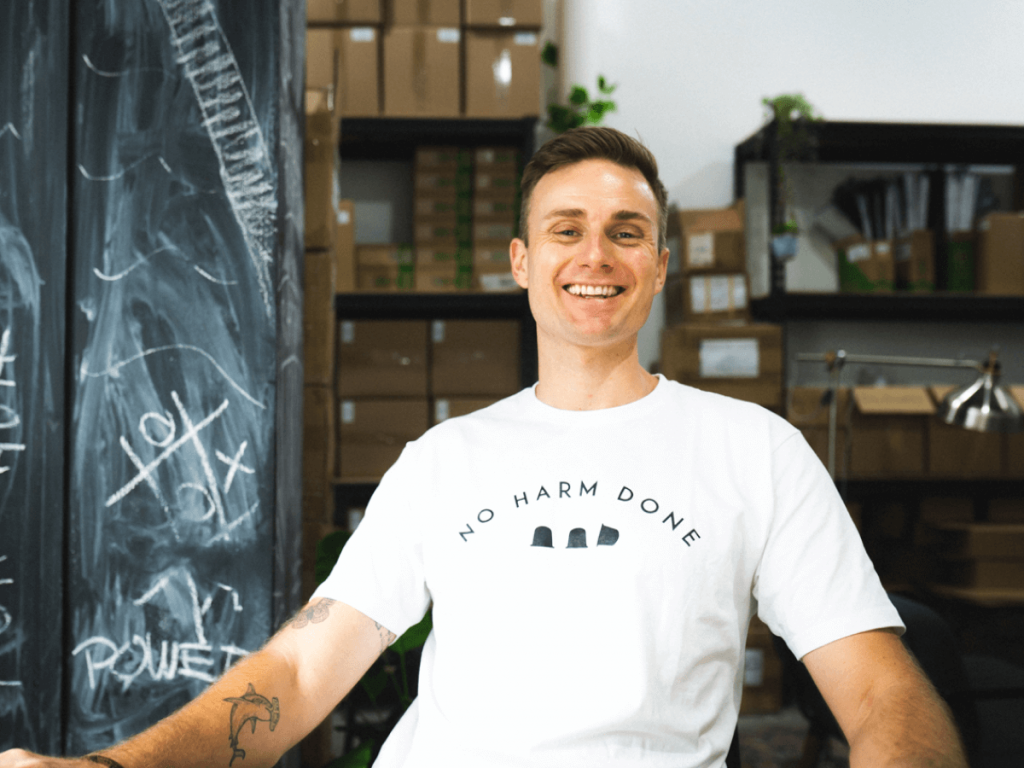
The idea for No Harm Done started when the couple was gifted a coffee machine. As they used the machine, the pods piled up, and it got Lieberum thinking about how the pods affected the environment.
He explored sustainable options, such as refillable pods, but didn’t find them a truly viable replacement.
Solutions like these are a great effort in the right direction, says Lieberum, but few people stick to them in the long run.
“(Refillable coffee pods are) very inconvenient. Also, the coffee quality isn’t necessarily there — not every coffee, and every combination (of) grind, size, roast, (and) intensity, is suitable for an espresso machine.”
What No Harm Done seeks to do instead is provide greener options to complement prevailing consumer behaviours.
“It’s very difficult to take something away from people that they’re very comfortable with,” he says. “(Since) you’re used to (coffee pods), stick to your habits — just use a sustainable alternative instead,” he adds.
The road so far
Lieberum recognises the concept of environmentally friendly pods is not new but is confident that No Harm Done’s take on it is an Asia-first when it comes to being completely biodegradable and plastic-free.
It’s been working with German company Terracaps to produce the pods — a partner carefully chosen for its carbon-neutral footprint and transparent sourcing habits.
Most capsules on the market — including No Harm Done’s initial product — include an aluminium lid, a component born out of necessity in this tropical climate. Otherwise, the Arabica coffees quickly turn sour, Lieberum says.
It’s been a long journey spanning several years for the small team at No Harm Done to do away with such materials.
[google_ad]
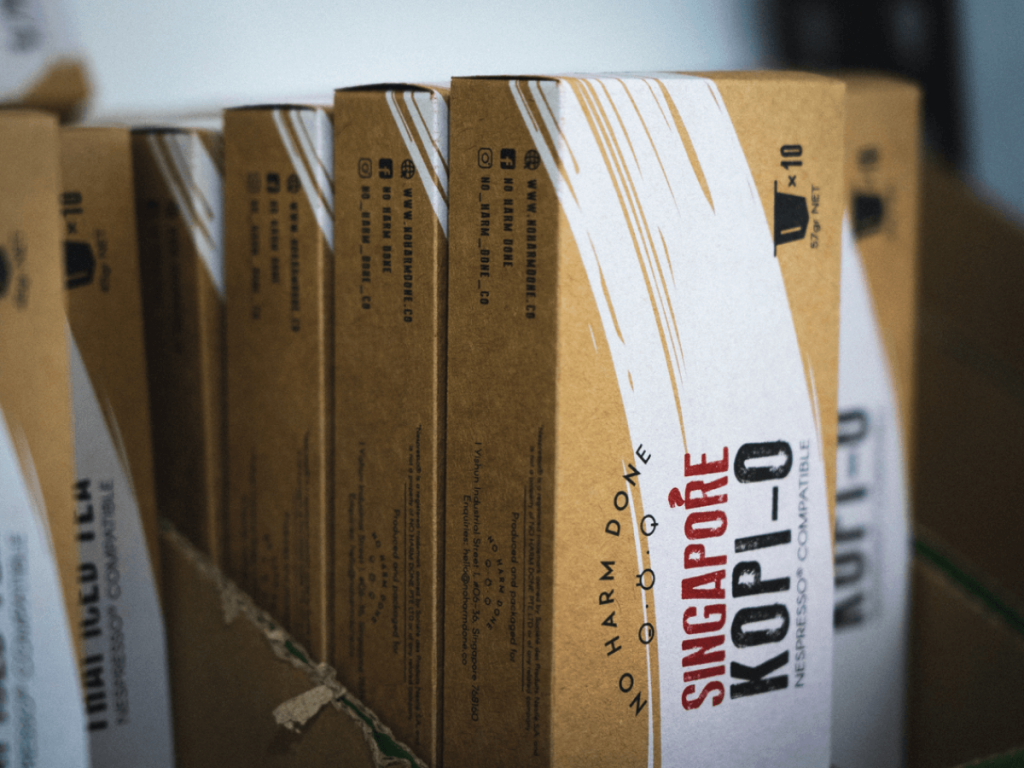
“It took many iterations and burned most of our paid-up capital to try different variations, compostable films and so on, to get to the point where we are now.”
According to Lieberum, No Harm Done’s finally hit the jackpot and settled on the best version yet. A new line of fully plant-based capsules, made from vegetable fibre and plant starches, is due to hit the stores in October. These are not only aluminium-free and plastic-free but certified home-compostable.
For the love of coffee
For Lieberum, it’s also about embracing Asian coffee and tea drinks, and taking them into the modern era.
His love affair with kopi began with an aunty — a kopitiam aunty, that is. “(When I first arrived), I just asked for an iced latte to-go, and then she gave me the Kopi-C in a (plastic) packet. It was just so weird, and I just loved it.”
He believes coffee is an indelible part of Singaporean culture. “(It’s) part of the fabric of identity, in a way, and then (gets) lost when you leave the hawker centre.”
“If you want it for the home or the office, there’s nothing (that you can buy).”
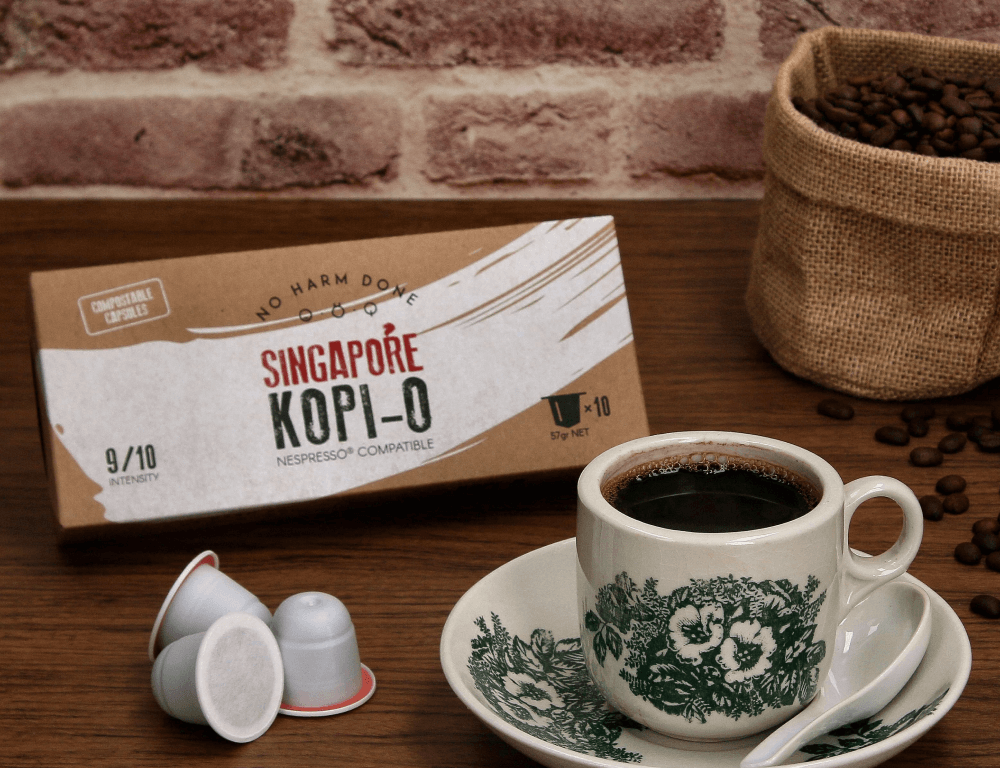
No Harm Done was thus born — promoting, in Lieberum’s words, “Asian coffees and locally inspired beverages in planet-friendly packaging”.
Its product line includes the usual suspects — organic coffee, espresso and the like — but also has flavours such as Singapore Kopi-O and cha yen, a Thai iced tea.
Social impact
Besides its work in producing sustainable pods, No Harm Done’s coffee also uses fewer raw materials.
“In each capsule, we work with around 5g of coffee, which is extremely little. If you go into a coffee shop and order an espresso, you might use up to five times more.” This translates to a lower carbon footprint per cup.
The team also uses secondhand packaging for its retail and e-commerce shipments, often giving new life to unwanted boxes and parcel wrappings from neighbouring offices and warehouses. Singapore startup Tria, which produces sustainable foodware, is one of its go-to partners for boxes and paper products.
No Harm Done also makes a point of working with vulnerable populations. For example, the beans used in some of its flagship coffees are supplied by fair trade coffee farmers in Doi Chaang, Thailand.
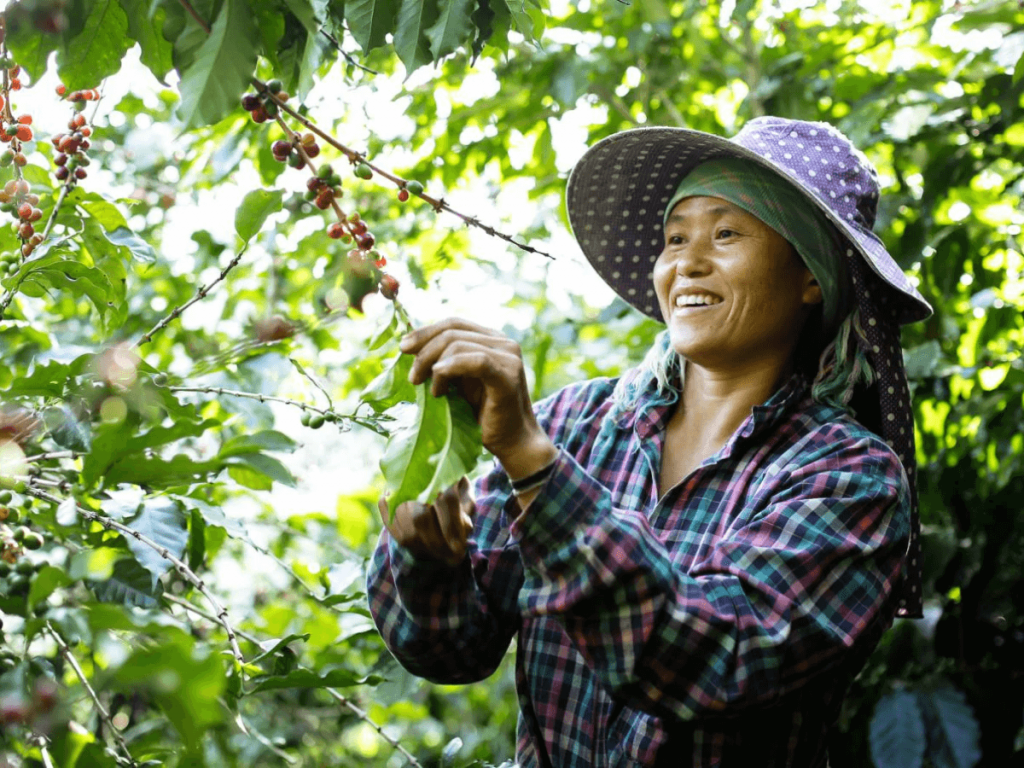
“We were always on the lookout for coffee farmers, where a substantial cut of the product and earnings stay within the community. We spoke to many and I think (with the Doi Chaang farmers, it was) just a good match.”
The farmers also lend their expertise in roasting coffee beans, so the beans come as a finished good, rather than just a raw commodity, says Lieberum. “We’re definitely paying significantly above market prices (for the coffee beans).”
And because profits ultimately go back into nurturing and educating the community, No Harm Done is happy to continue its current business model.
Closer to home, No Harm Done offers job opportunities to the elderly. Jannica Chye, 64 — affectionately called “Aunty Jannica” by the team — starts her morning packing e-commerce orders into boxes, readies them for shipping, and is often done for the day by lunchtime.
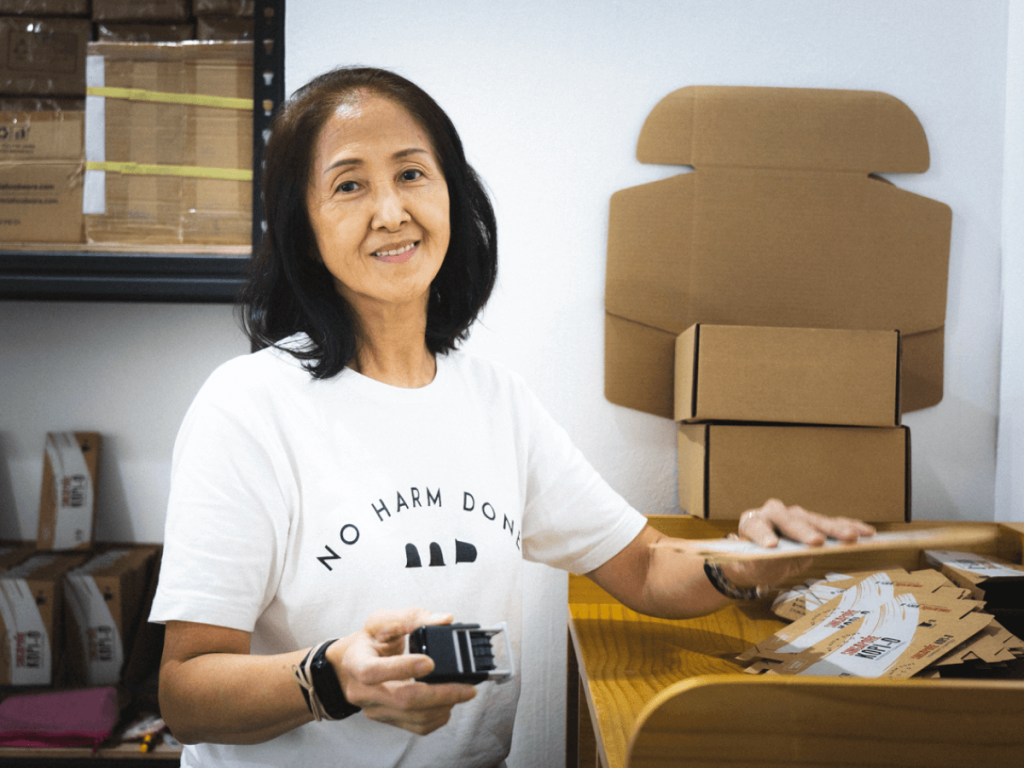
Says Lieberum: “If (the elderly) still need to work, then it’s good to have an environment where it’s not too stressful. One where part-time (work) is an option, where it doesn’t matter how good your English is, or how well you can hear, or how fast you can pick up information — as long as the order is packed with the right product, in the right box.”
What’s next?
No Harm Done ships out 400 coffee orders every month, mainly from regulars and referrals from various channels, including its website and e-commerce platforms.
Two more Asian-inspired flavours are also slated for launch by year-end.
“Our idea for the next year is to start venturing into other Southeast Asian countries — probably Malaysia and Indonesia, with their strong coffee culture,” says Lieberum.
No Harm Done is on the GrabMart delivery service.
